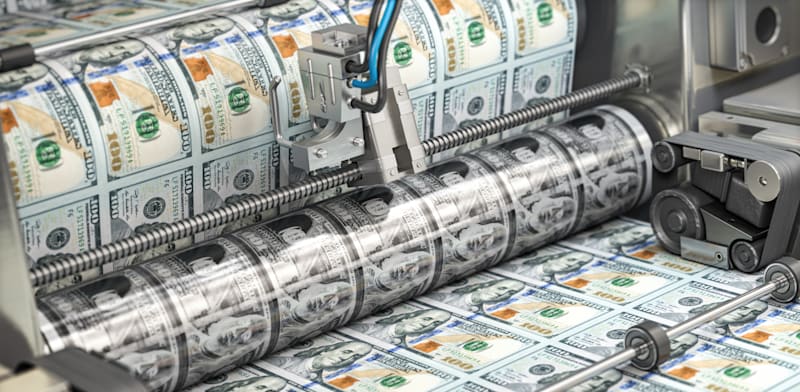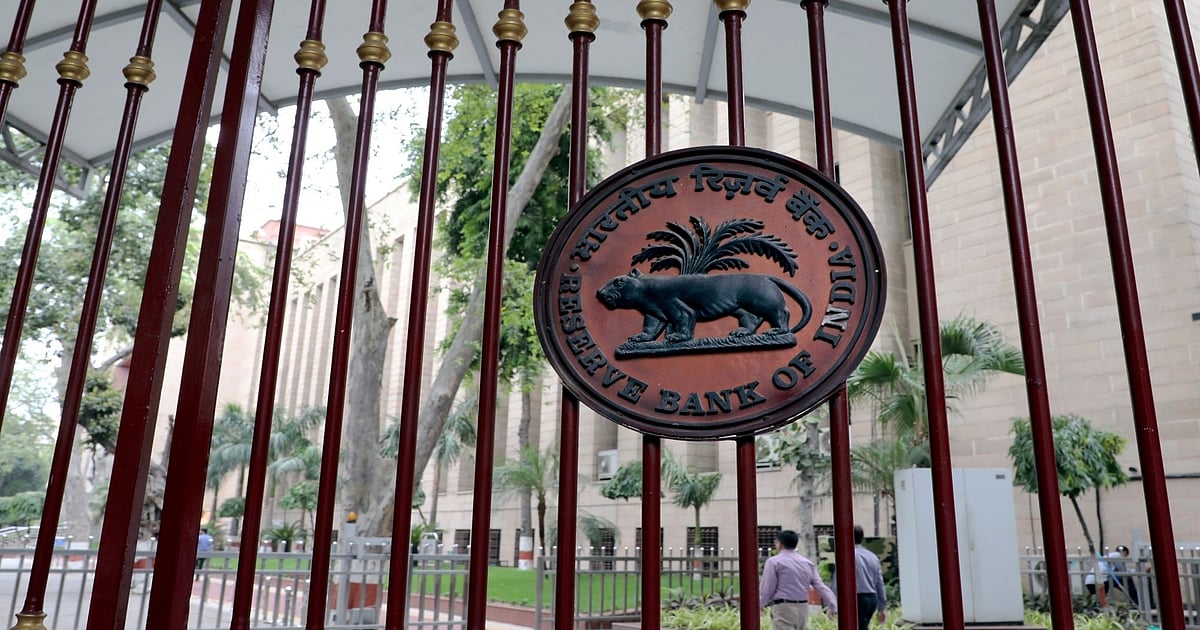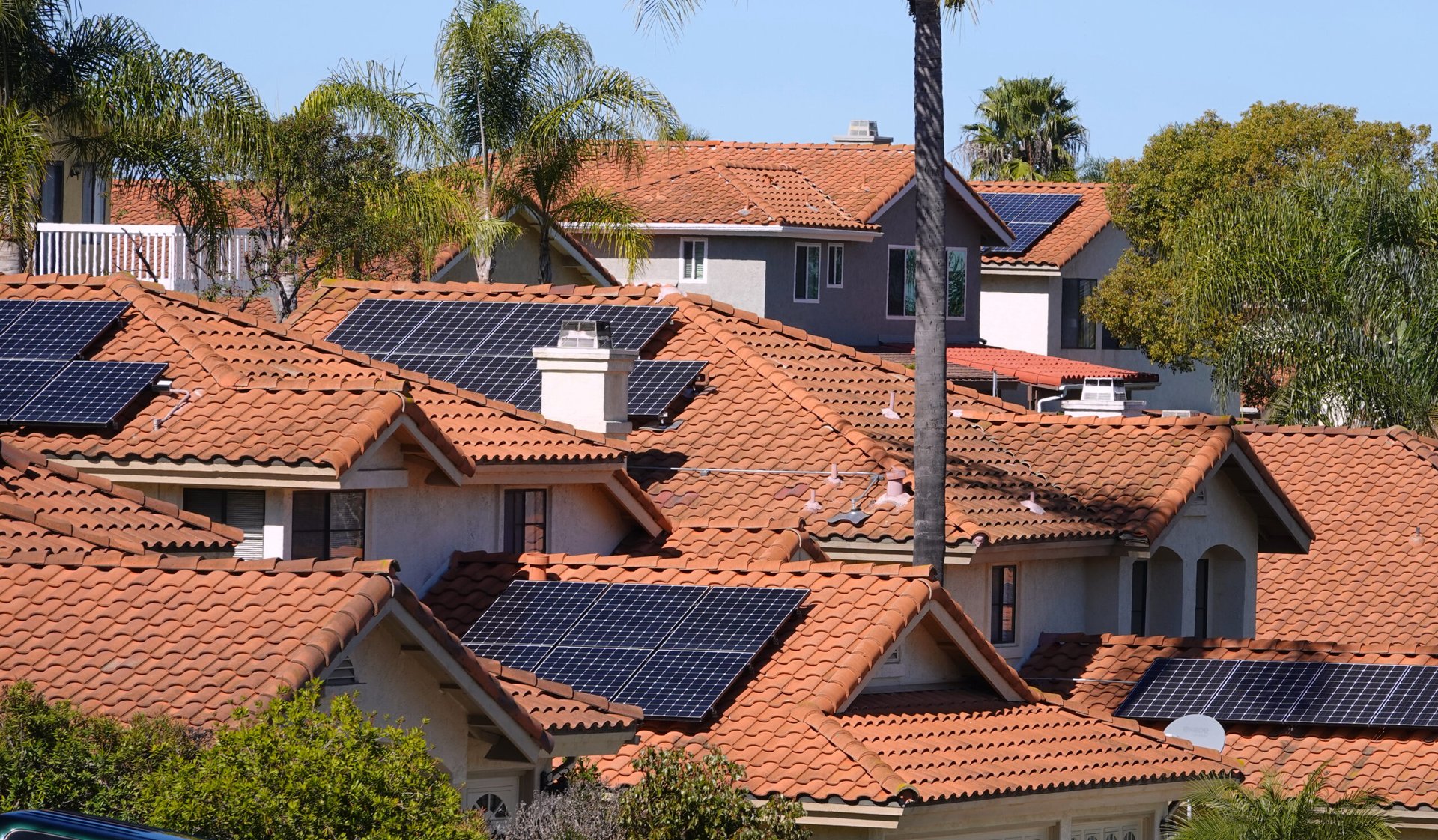Thought we were done with mortgage rate hikes? Not so fast. The Fed always has time to get mad about something else and push interest rates even higher. This time, a surprise job report makes the Fed furious and could lead to a much more difficult housing market for investors and homebuyers. But this news isn’t all we’ve got on this episode. We’re touching on some of the biggest stories across the housing market, summing them up, and sharing them with you so you can bob and weave with the ever-changing economy.
Want to invest in real estate with just a thousand bucks? If so, you’re NOT in luck because one prominent real estate crowdfunding platform has just gone bankrupt. But don’t worry; it’s not all doom and gloom. The new jobs report is painting a stellar economic picture but could lead to you having a more expensive loan. And for those that own short-term rentals, one housing market forecaster is predicting a mass sell-off due to Airbnb host income declining.
Finally, we’ll talk about home prices, whether they’re actually falling or not, and how home buyers are STILL bidding even during some of the lowest affordability we’ve ever seen. Keep your pulse on the property market; tune into this week’s real estate roundup!
Dave:
What’s up, everyone? Welcome to On The Market. I’m your host, Dave Meyer. Joined today by Kathy Fettke. Kathy, how are you?
Kathy:
Wonderful. Glad to be here.
Dave:
It’s great to have you, Henry. How are you?
Henry:
What’s up, buddy? Good. Glad to be here.
Dave:
Saw you’ve been Threading a lot.
Henry:
Yeah.
Dave:
How are you liking Threads?
Henry:
I don’t.
Dave:
You don’t? Why not?
Henry:
I don’t. I was overwhelmed enough with the social media platforms we had and now I feel like there’s something else to learn, but that’s the old person in me talking.
Dave:
I like it because I feel like I missed the boat on Twitter. I read it, but I never post on it because I’m just too far behind.
Henry:
I agree with that immediately.
Dave:
And on TikTok, I feel like I was a week late on that one. And now I’m like, “I’m getting in early on this one. Let’s see what’s going on.” James is also here. James, how are you?
James:
I’m good. I’m still trying to figure out what Threads is.
Dave:
I am not surprised by that.
Henry:
James, have you heard of the internet?
James:
Yeah. I was trying to boot up my megaframe and download Threads this morning. As far as I know, Threads is what I put on in the morning.
Dave:
Well, I guess this is a good segue into our show because Threads is making a lot of news right now. We’re recording this in the beginning of July. But we are going to be getting into a lot of other news, economic and real estate-focused news over the course of this episode. We’re going to be discussing four major stories in this episode. We’re going to be talking about Airbnb reporting declining revenue for hosts, not necessarily for the company, and how that might play out in the housing market. We’ll talk about some big banks going bankrupt. What’s going on with the Fed. And just general updates on the housing market.
But before we get into those stories, I want to do a little test. We’re going to see how well you do at a news quiz. We actually just have one question for you and basically it’s like two truths and a lie, three truths and a lie. But one of these headlines is fake and the other three are real. So, I want to know if you guys can pick out what is the fake news.
Here are the four headlines. The first one is, “House hunting is already tough. Guess what? It’s about to get harder.” Two is, “The market hates real estate stocks. It’s time to buy.” Three is, “Commercial real estate rebound may not happen until 2050.” And lastly, “Should I buy a real estate empire over my fiance’s objections?” Which one of these do you think is fake? James?
James:
You know what? I think I’m actually going to go with, as weird as some of those titles are, I’m going to go with the commercial real estate because I just don’t think you can forecast that out 25 years down the road. That doesn’t make any sense to me.
Dave:
Okay.
James:
I mean, I think you can somewhat a prediction, and I don’t believe in that either.
Dave:
Just because they can’t forecast it doesn’t mean they won’t write a headline about it.
James:
Very valid point.
Henry:
I would argue that that means they are going to write a headline about it.
Dave:
Exactly. “Someone said it. Let’s write an article about it.” Henry, what do you think?
Henry:
Gosh, man. I’m going to go with, “The housing market hates real estate stocks. It’s time to buy.” Only because I really hope that, “Should I buy a real estate empire over my wife’s fiance objections.” I hope that that’s real.
Dave:
If that one is real, we’re getting that person on the show. That is going to be the next guest.
Henry:
I really want that to be real, so I can’t pick it.
Dave:
Same. All right, Kathy, what do you got?
Kathy:
All right, I’m going with that one, “Should I buy a real estate empire over my fiance’s objections?” This is a fake marriage or a fake headline. One or the other.
Dave:
One or the other. Yes.
Kathy:
Yeah.
Dave:
Yeah, there’s something wrong here. Also, how do you just buy a real estate empire? Is that just possible? I didn’t know you could do that.
Kathy:
That’s a very good question.
Dave:
Anyway. Okay. Let’s see what we got. The fake headline, James, you were correct.
James:
Yes.
Dave:
The actual headline was that, “Commercial real estate rebound may not happen until 2040.”
Kathy:
Yes.
Dave:
So, it wasn’t because they weren’t trying to forecast 17 years down the road, they’re still trying to do that, but they think that whoever wrote this said that, “Commercial real estate may not happen for 17 more years.”
Henry:
This is the first time I’ve been excited about getting the question wrong, because now I know that the marriage title is real.
Dave:
It is real. Yeah.
Henry:
Now we need to dive into this.
Dave:
Kailyn, we need to get everyone on this. We need both of them on. We need both sides of this couple on the show. The fiance and whoever posted this need to come on and we need to talk to them.
Henry:
It’ll be like an episode of Maury. I
Kathy:
I feel like they need a little bit of marriage counseling before this happens. Just-
James:
That’s what I was going to say. I do not want to be on this panel. I don’t like getting in the middle of couple conflicts.
Dave:
I think we need to get Kathy and Rich. Don’t you guys do couples retreats where you teach people how to invest together?
Kathy:
How to be on the same page with finances? Yes.
Dave:
All right. I think we have a candidate for our Maury.
Kathy:
The reason we teach financial coupling, basically, is I did buy a house when we were married, without telling Rich. Our first one.
Dave:
Like, to live in or just an investment?
Kathy:
No. Investment.
Dave:
Okay.
Kathy:
Yeah. And I was so scared to tell him. It took a little while. We teach what we most need to learn. It’s true.
Dave:
How’d that house work out?
Kathy:
Fantastic. Thankfully.
Dave:
Okay. Good. You saved your own (beep) there.
Kathy:
Yeah. Remember, that was back when you could do no money down investment property loan. So, there was no way of knowing. Nothing came out of the bank account. Isn’t that crazy? Those were crazy times.
Dave:
All right. Well, congratulations, James. I feel like you’re on a roll with these news quiz, James, recently. It’s been cheating a little bit.
James:
I’m a professional guesser.
Dave:
It’s working out for you. All right. Well, we do have a discussion of very real stories that are impacting the housing market and the economy that we’re going to discuss in just a minute. But first we’re going to take a quick break.
For our first story today, we’re going to talk about a part of the housing market that has been of particular interest to me. I’m curious about all of you. Which is, what is going on with short-term rentals and Airbnb? This article, which is titled, Why Airbnb Owners are About to Sell, was produced by something called Reventure Consulting, and what they’re saying is that there’s way too many Airbnbs, there’s an oversupply. And when you compare the oversupply of Airbnbs to the number of houses on the market, that ratio for some reason, might indicate that there’s going to be a lot of forced selling.
They also point to the fact that the average revenue per listing on Airbnb is down 13%. And the person who wrote this, Nick Gerli, says that, “That means that there’s going to be a huge housing crash in a lot of markets driven by Airbnb.” Kathy, curious your thoughts. You’re laughing.
Kathy:
You can see me laughing.
Dave:
Kathy’s laughing, and I want to know why?
Kathy:
Because there’s always a housing crash headline. You could go back to 2012, or 2013, or 2015, or 2018, there’s always a reason. It was going to be that the baby boomers were going to have to all die at the same time and there was going to be this glut of housing.
Dave:
The silver tsunami.
Kathy:
Yeah, the silver tsunami. I mean, there’s always-
Dave:
Yeah. It’s very scary stuff.
Kathy:
… a headline that loves to scare people into the housing crash. Honestly, if all 1 million Airbnb owners sold on the same day, it would probably be the best thing for real estate.
Henry:
Right? It would be amazing.
Kathy:
It would be such a good thing and prices would come back down to Earth and there would be enough for all the baby boomers who would like one of those. So, the headline should say, “Wouldn’t this be great if all the Airbnb owners just sold?” But the chances of that … Yes, of course, some overpaid and of course, some were relying on numbers that were never going to last. Looking at pandemic numbers when airplanes were not flying anywhere and hotels were shut down. You’re going to stay in an Airbnb.
So, all of a sudden, when people could fly to Europe and Hawaii and go to exotic places, of course they’re going to do that again like normal. So, if people depended on the last three years, looking at those numbers, and paid too much for the property, of course they’re going to be in a world of hurt right now and sell that property. But will they really take a hit, a bad one? I don’t know. What do you guys think?
James:
I just think a million properties getting sold all in one day would be the most awesome day ever.
Dave:
This is your dream. James would buy all of them.
James:
Can you imagine? You’re just buying and buying and buying. That would just be so awesome and then you’d have to deal with the mess. But I think that the headline’s a little bit more shock. I do think that that sector is going to have a lot of issues.
Airbnb is still a good model for the right operator that’s buying in the right market. What happened is there was too much access to capital and people were buying stuff in markets that it doesn’t make a whole lot of sense in and it was a forced play. And anytime you force any type of investment, it’s no different than how fix-and-flip took a bad hit this last 12 months, and the reason being is it was a forced play. People were banking in appreciation, which is a bad idea for fix-and-flip. You want to always evaluate on the now, not factor in appreciation.
It’s, people were buying these and then I was talking to a lot of people about them and they didn’t really have a game plan. It was like,” I just bought this because this is coming.” And I’m like, well, but they didn’t understand the metric. They really didn’t run it like a business. And so, I think that there’s a huge segment that are going to have a huge issue and they are going to get sold. And the issue’s going to be is those areas in these secondary markets have deflated 10% and they’re not going to be able to sell them because they put very little money down. And anytime you have investors putting very little money down, that don’t know what they’re doing exactly, it’s a recipe for disaster in any segment.
Dave:
But that’s true in anything, right? That’s not unique to the market we’re in or anything, right? It’s just like, if people overpaid and are bad business people, then of course they’re going to do poorly.
Henry:
I think the difference here is the accessibility because, A, there was tons of money out there so people had the money to buy these properties.
To clarify here, right? There’s a couple different kinds of Airbnbs. You’ve got the Airbnb that’s just a regular house that somebody furnished and is renting on Airbnb for a reasonable nightly rate. And then you’ve got the Airbnbs where people went and they paid a couple million dollars to have this extravagant Airbnb that makes no money any other way than as a short-term rental. And when people had access to a ton of money, it was easy to buy them. But what else people had access to was Airbnb co-hosting and management, because tons of people also started co-hosting and management businesses in the pandemic because of the Airbnb boom.
And so, somebody with access to money was able to say, “Well, I can go buy this amazing, super sweet house out in Joshua Tree or Austin, Texas, and then I can just give it to this property management company. I don’t have to do anything and I’m making oodles of money every month.” And then, these management companies weren’t as great as they thought they were. You don’t understand your business or the market that you’re in, and now that things aren’t as easy to make money, I think these operators, the ones that aren’t really experts in their business are the ones that are going to be in this position where they have to sell. But good operators are still buying and are still finding ways to make money.
Dave:
Totally agree.
James:
I think one concerning thing that could be a ticking time bomb in there is, I remember a bunch of lending product got developed in and created on where they were doing debt service coverage ratio loans on all these for people, because the appraisals weren’t hitting. So, there was all debt coverage.
A lot of those are on three to five year notes and I would be concerned about those all ballooning out. I mean, their payments are going to double and that’s going to be a massive issue. And people, I don’t think really understood the debt that well. And anytime debt’s not understood and it’s being used, it can be a bad thing. So, I do think that there is going to be a lot more inventory in the market.
Dave:
I sort of agree with some of the premise here that Airbnb is oversupplied a little bit and too many people got into it, but honestly, my blood was boiling when I was reading this article because the quality of the data analysis is just so bad. I just couldn’t take it. This assertion that somehow the number of Airbnbs in the area is related at all to inventory on the housing market. It doesn’t really even make sense to say that, “Oh, there’s a lot of Airbnbs relative to inventory in a big vacation area.” Of course there is. That has nothing to do with the fact of whether or not the housing market’s going to crash.
And I agree that there’s an oversupply and some of these people are going to sell, but I just think there is a lot of holes in the logic here. Oh, it was also like, “Oh, revenue per unit’s down 13%.” It’s also probably up 50% since before the pandemic, so people are still making money. It doesn’t necessarily mean people are really hurting. It has nothing to do with their cashflow. It says nothing about demand and whether demand is falling off. So, I think there’s some holes here in the article, but I think all of your logical opinion to this makes sense.
Henry:
I think the publisher is going to reach out to Dave and be like, “Hey, you want a job?”
Dave:
Well, this guy, he’s a famous, at least in my world of housing market analytics, doomsdayer. Has been saying the market’s going to crash every single day for the last several years. So, it gets me going, if you can’t tell.
Henry:
“Grinds my gears.”
Dave:
It certainly does. All right. Well, I think this was a good discussion, and thank you. I think the lesson at least to me is, if you’re a good business operator, you’re still going to be okay, but if you’re just buying and hoping something good is going to happen, that’s not actually investing, that’s just speculation or, I don’t know, something even worse.
For our second headline it is that, “PeerStreet files for Chapter 11 bankruptcy protection.” If you haven’t heard, PeerStreet was a platform for online investing and real estate debt. It basically connected accredited investors, funds and institutions to certain real estate-related debt that it used to be hard for them to basically buy into. And it was a big thing. There was some really big names getting into it. Andreessen Horowitz, which is one of the biggest, most reputable venture capital firms in the world. Michael Burry of The Big Short fame invested in this. So, there was a lot of people into it and they just went bankrupt. James, I know you were keen to talk about this and I’m interested in what you think about it.
James:
Yeah. The writing’s on the wall for these big Wall Street lenders that were buying up notes or that are doing the crowdfunding that they’re doing here. What we’re seeing is we’re seeing this domino effect through the market. Right? We just saw Civic get sold. And what was happening is these loan originators were getting sold over and over and over again to VCs.
I think there’s a company called Genesis Capital that I’ve done business with, they were sold two or three times since I’ve known them because they get these high valuations. VCs want to work the money, they’re getting a high yield, and they got into this space because the returns were so good. Hard money started becoming Wall Street money. But the thing about hard money lenders in this business, this tells you why bankers should not be doing this. This is an operational business. Right? You can’t surface underwrite. This is why Redfin also couldn’t buy houses with analytics, because there’s this rawness you need to be able to really look at what investors do. And that’s understand what the asset is, what’s the potential, and then what does it need to get there? And that’s what none of these guys really understood is what did it need to get there? And that was the strategic rehab plan.
Then what happens is these VCs or PeerStreet, they were bringing in so much money. I think when I was reading last night, they did $640 million in loans in 2020 or 2021, and then it went in half. But they get this mass infusion of money and they want to deploy it. That’s all they want to do is get their yield, get their rate, and it gets them in trouble and it’s too much money for what we do into our market.
And then, this is what we’re seeing is they deployed too much money, went to operators that didn’t know what they were doing, and they’re getting jammed with the rates getting spiked, in addition to their debt is spiking on them. And it’s just, they’re getting folded up. I do not think this is going to be the last one that goes. I think we’re going to see more and more of this. And the reason being is just they jumped in, they got greedy and they deployed too much capital. All these VCs that are … As far as I’m seeing in these spaces, too much money got sent out and now they’re trying to get it back as quickly as possible. But Civic sold, I think their note balance for like 20% less than their originated balance. And we’re talking about big dollars there. If you’re talking about 600 to a billion dollars in loans, 20% is 200 million. Yeah, it’s just a huge number that is getting eaten up right now.
Henry:
Yeah. I couldn’t agree with you more, James. I feel like there’s lots of institutional investors and when you’re investing in stocks or any other type of investment platform, you are truly investing. And I think, real estate, it gets lumped into this sometimes because it’s called real estate investing, but real estate investing is a business. You have to be able to operate a business in a certain way. You have to have an understanding of that business in order for you to be able to grow and scale it, and it’s not just a pure investment. And so, I think they lack the operational skills or the understanding of the actual real estate assets that they’re buying, and it gets people into trouble.
Kathy:
Well, also according to the Real Deal, these were distressed assets. So, that 10X is what you guys are saying is you really have to know what you’re investing in. It seems like such a safe investment and I always say that to people, “Notes are probably one of the safest, especially if it’s locked in a first lane position.” Which apparently most of these were. So, I could see why investors would be pouring their money into it, but if they didn’t have an asset manager, if they didn’t really understand, and of course, I don’t know, maybe they did, but that really understood those projects, well, the whole project can go down, especially when rates went up so dramatically over the past few years.
But again, according to the Real Deal, they did take a Paycheck Protection Program loan of 2 to 5 million in 2020 to retain 150 jobs. But I don’t know about you guys, but in 2020 real estate was kind of booming.
Dave:
Yeah.
Kathy:
So, I don’t know. Anyway. There were already several rounds of layoffs between 2020 and 2023. I could certainly see in 2022 and 2023, but not 2020 and 2021. So, I don’t know, perhaps there was some issues with operations or what often happens … And I’m so excited, Rich and I are going to be writing a book on scaling with BiggerPockets, can’t wait. But scaling. A lot of times these institutional investors like nice cars, like nice salaries, overheads are really high and maybe just they didn’t scale properly.
Dave:
Seems like they definitely didn’t scale properly. The bankruptcy seems like an indicator of that.
Henry:
What are you, some sort of data deli?
Dave:
Yeah. Calculating the numbers here.
James:
And these guys, it wasn’t just distress, because PeerStreet was trying to buy notes off us. You would go to these hard money lending conference and everybody’s just trying to buy your notes. It’s weird, the hard money conferences, it was like we used to go there and it’s like, “Oh, we’re these lenders.” And then you were looking at products to grow and then all of a sudden in the last three years, every booth at every one of these conferences were all note buyers. They weren’t originators, they were note buyers, and they were just trying to buy debt.
And then we saw all these popup lenders shooting up everywhere. I’m like, “You’re a lender now?” It was just like you could become a lender and sell a note off. And so, when you have that much inexperience in the vetting of the deal and the underwriting, it can be very, very risky.
Dave:
All right. Well, we’ll have to see how this plays out, but I’m with you, James. I don’t think this is going to be the last one. We’ll see how the dominoes continue to fall, if we’re all correct here about this one.
The third headline today is, “The macroeconomic and real estate situation at midyear.” Cue the FOMC again. The FOMC is basically the meeting of the Federal Reserve that they do many times per year to discuss interest rate policy and what they’re going to do. And basically this headline is talking about what the probability of future Fed rate hikes are, where we are now in July. And I think as of today we got some interesting data that probably is important to this conversation.
Just this morning, the job data came out saying that there was way more jobs added in June than was originally predicted. There was actually 497,000 new jobs added, which is double what was expected. And so, this is likely going to at least push up bond yields right now and give the Fed some cover to raise interest rates, because it doesn’t seem like the job loss recession is anywhere close. Kathy, what do you think about this?
Kathy:
I think our economy is too darn strong right now. To think that rates have gone up over 5% in a year-and-a-half and creating that many jobs and home price’s up and rent’s up. I mean, the Fed’s got to be pretty frustrated.
From some of the economists that I listen to, what they’re saying is that the Fed is really relying on outdated tools to try to slow down this economic beast and raising rates may not be the solution this time around, which I can see their point. I just don’t know if they’re going to get that memo or know any other options. So, based on the fact that what they have been doing hasn’t worked, my guess is we’re going to see more rate hikes, and yikes.
Henry:
I wholeheartedly agree, because the data is just so funny to look at because all the indicators are pointing to a strong economy and then you’ve got consumer spending is up. So, people’s confidence in the economy is strong. People are getting used to, the interest rates are between six and 8%. And so, I’ve got multiple offers on properties and more buyers and less days on market. It’s just, it’s nuts. And so yeah, I think they’re going to do what they said they were going to do and continue to raise rates, because what other levers do they have?
Kathy:
I want to add one more thing too, that at least according to Logan Mohtashami, a lot of this job growth is really just still a rebound of COVID job losses, and that in a normal economy we would still need another … I forget what he said, but I think it was like a million more jobs to catch up where we would be had there not been a pandemic.
Dave:
Wow.
Kathy:
So, that little piece of information isn’t shared very much. So again, leisure and hospitality led the job growth with 232,000 jobs, but we know that leisure and hospitality was the sector that got hit the hardest during COVID. So, maybe it’s just these places are opening back up and that we’re getting back to normal, but the Fed isn’t going to see it that way.
Dave:
It is pretty remarkable though. Did any of you think this is where we would be at this point in the year?
James:
No.
Kathy:
No.
Henry:
No.
James:
It ruined my morning when I woke up.
Dave:
But it’s so weird, right? It’s like ruining your morning that people are getting jobs.
James:
Well, it just goes back to the Fed basically, what they’re saying, they want to slow this down and Powell’s been fairly aggressive and these zombie jobs just keep coming back. And the labor market has to cool down before they slow, which if they keep raising rates, it’s going to have negative impacts for all of us down the road. And the sooner this is over, the better.
So, it was starting to cool down the last couple of months, you’re seeing the headlines, you’re seeing the data, and then all of a sudden it just doubled. That’s not good. So, it was not what I wanted to wake up to this morning.
Dave:
Yeah. I mean, I think that there has been this weird sentiment where good news was bad news and bad news was good news, because we’ve been hearing that there’s this recession coming and you want to get it over with, right? It’s like every time there’s a good jobs report, you’re like, “Oh, the recession’s coming. Might as well just get it over with.”
But I am always curious, if that narrative didn’t exist, that there’s going to be a recession, how we would all feel about this. Because unless we all think that it’s coming, because rates keep going up and that’s the historical precedent, but there is a lot of data that just suggests we’re not really close to a recession right now. And I wonder if we just stopped thinking about that, if it would change our perspective on how to behave?
James:
But at the end of the day, it’s not just the mental thing. It’s the cost of money is expensive right now. You try to buy things, it’s hard to make things work and these rates are just going to keep … Because when I saw that, I literally envisioned Powell waking up just furious about this.
I do think the rate hikes were starting to cool down, but now they’re going to keep jamming up and it is slowly eroding capital in the market. I’m seeing it happen. These yields that people are … I mean, the profitability of businesses are down. It’s like people are busy right now, but they’re making way less money.
Dave:
Interesting.
James:
I feel like I’m one of the most busiest I’ve ever been, but our income has dropped quite a bit. It’s like you have to work harder to make that return. And that’s not going to get any easier in the investment space until we see this break.
Kathy:
Well, wages did go up, and yet you have millions of Americans who are locked into really, really low housing payments. So, historically low. Very, very low percentage of income goes to your home cost for those who own homes and are locked into those low rates. So, that leaves more money to spend if you’re seeing wage growth, but your mortgage payment is locked. So, that could be part of it.
I can tell you here, there’s a house for sale up the road and granted I’m in a high-priced market where wealthier people will buy. It’s a $1.8 million house with ocean views, which I think was priced too low, but they had flooded with offers all cash, people flying out from the East Coast to come see it to make the offer same day.
Dave:
Whoa.
Kathy:
I mean, it’s nutty. So, there’s still a lot of money out there.
Dave:
Should we get in on it?
Kathy:
Honestly, you guys, it might be too late, but you could try. It’s gorgeous.
Henry:
We can do it and then we can give it to an Airbnb management company and just set it and forget it.
Dave:
Boom. We’re rich, immediately. All right. Let’s move on to our last headline today, which is one of our favorite topics, which is, what’s going on in the housing market in terms of prices. The headline is, “As home prices fall, a whole new housing problem has just reared its head. This is a question about inventory.” Basically the number of home sales has stopped growing and in fact, it actually turned negative for the first time in 2023, which is wild because basically the whole premise of … I mean, the whole logic, if you believe that the housing market is going to crash, you have to believe inventory is going to go up. That’s how supply and demand work.
And so, a lot of people have been thinking inventory is going to go up and that’s going to cause the market to crash, but we’re seeing inventory go down. It is down year-over-year and we’re comping against last June where things did peak, but we had already started interest rate hikes at that point. And so, the fact that we’re down June-over-June is pretty remarkable and has probably some big implications for the housing market. So, Henry, what do you think this means?
Henry:
You know what? These headlines are tough for me because my market’s doing the opposite. We’re still seeing prices increase to the tune of about 10 to $15,000 per month we’re getting an average home price increase. The volume that we’re seeing. And our inventory is so low compared to where we would need to be for this to be a buyer’s market, for example, we have about, I think it’s less than 2,000 homes available for sale. We would need to be at about 5,000 for the market to have truly shifted here.
And so, when I see these headlines, it’s hard for me to picture what that’s like in other markets because we are seeing the exact opposite. And as far as on a larger scale, I don’t know, man, it just feels like a blip. I think every time I talk to you guys or I’m talking to investors in other states, it’s still seeming like there are buyers out there with money, paying cash, scooping up properties in less than the average days on market. And so, I don’t know that it has much impact.
Dave:
James, what are you seeing?
James:
We are seeing a lot more movement in areas across the board. My fear about this is we’re locking into this weird, expensive market to where there’s not going to be a lot of inventory, like that lock-in effect is really coming true. People are not selling their properties right now.
I think there’s going to need to be … Just the interest rates alone feel like it’s not affecting the housing market. It had this massive dropdown, now people are getting used to it, which is bizarre to me. I’m like, the cost of money is up so much. I’m running house payments on houses as I’m looking at pricing, I’m like, “How are people buying this stuff?” It doesn’t make any sense to me, but it is going and it’s getting consumed.
I do think there is going to be a shift, but it’s not going to be because they rates, it’s going to be something else outside. I think our economy just, we pump so much money in, if the dollar starts devaluing or there could be some other outside factor that really triggers a fall. But right now, it seems like people are just getting used to the rates. I guess it’s true because credit card debt’s at an all-time high too, and that’s really expensive debt and people don’t care. It’s like people have lost the respect for the dollar and saving and money and they just don’t care and they’re like, “It’s going to be fine.” And I mean, that is what we’re seeing.
Dave:
Well, that sounds like a recipe for success.
James:
Ah, it’s fine.
Dave:
Oh my God.
James:
It’s the mindset of a consumer now, they’re like, “I want that. I’m going to go buy it.” And things are transacting. But I think in the higher end, I’ve seen cool down still. It’s not moving. There’s not as many buyers there. It is that more affordable market, people are still good, spreading out throughout the US. And we’re seeing that in the data too.
Dave:
It’s interesting, I agree, it’s confounding that people are still buying with these higher interest rates. I guess people have a lot of money saved up or incomes really did go up among the people who are at the right age to buy homes. Incomes don’t have to go up across the board, it has to be the right demographic and maybe that’s what’s going on.
But to your point, James, about an external factor. A couple of weeks ago we did a show talking about student debt relief and the resumption of student debt payments. And the average, it’s higher than I thought it was, about $400 a month per person, which is really significant. So, if you take that in combination with higher interest rates, higher credit card debt, there are some confluences of factors that could contribute to even lower affordability than we’re at right now.
Kathy:
So, on this article it says that, “In June of ’22, the median price hit a record high of 449,000 and it plummeted to 441,000.” You’ve got to look at the choice of words that are put in headlines. Right, you guys? And we’re talking about the national median price, which we all know there’s no national median home. So, that means that some properties obviously went up a lot while others went down, because this is the middle.
I think, July we’re going to see a different story. Also, these are June prices and we have to remember that very much housing is usually dependent on interest rates and interest rates did go down a little bit, mortgage rates, and now they’re back up over 7%. So, it’ll be interesting to see what happens in 30 days from now, 60 days from now, because it’s a different story. More people will be priced out again. But with that said, inventory is so low and demand is so incredibly high that there’s still enough people who can afford. Most people can’t, but there’s enough people who can and that’s what’s keeping it propped.
James:
I wonder if the seasonal real estate is over because there’s such low product in the market, because COVID did ruin the seasons of selling, right? Before COVID, summertime and wintertime were not great times to sell your property. It was slowing down. You were going to sell that for a little bit less. And then what happened is there was zero inventory and those seasons went away.
So, this next quarter, I am going to be interested to see what’s going on because it has been low inventory, it’s been hotter, but it’s supposed to be, it’s the spring. Spring is the hottest time to sell a house. And so, I think this July and August is going to be very important to watch to see if there is any slowdown before the year start going, because that’s really going to be the more telling story this spring. There was no inventory built up by our demand. Things are still moving, but let’s see if the seasons come back too.
Dave:
All right. Well, thank you all so much. This has been an excellent conversation and hopefully for all of you listening, it helps you understand what is going on in our economy and the housing market right now.
If you enjoyed this episode, please don’t forget to give us a review. We have tens of thousands of people who listen to this podcast every week, and we have 500 reviews. So, if you’re someone who listens all the time, do us a favor, take one minute and go on Apple and Spotify and give us a review. We really appreciate the support.
Kathy, James, Henry, thank you so much and thank you all for listening. We’ll see you next time for On the Market. On The Market is created by me, Dave Meyer, and Kailyn Bennett. Produced by Kailyn Bennett. Editing by Joel Esparza and Onyx Media. Research by Puja Gendal. Copywriting by Nate Weintraub. And a very special thanks to the entire BiggerPockets team. The content on the show On The Market are opinions only. All listeners should independently verify data points, opinions, and investment strategies.
Speaker 5:
(singing)
Interested in learning more about today’s sponsors or becoming a BiggerPockets partner yourself? Email [email protected].
Note By BiggerPockets: These are opinions written by the author and do not necessarily represent the opinions of BiggerPockets.







































